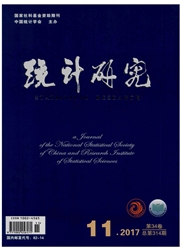

 中文摘要:
中文摘要:
PPI对经济走势具有较好的预见性,货币政策应更多地关注PPI。本文构建了含交互效应的面板SVAR模型,基于我国工业34个行业,实证分析货币供给对各行业PPI影响的结构性差异,以及PPI对各种主要冲击因素的动态响应机制。研究发现:货币供给冲击对各工业行业PPI波动的影响差异很大,贡献度从0.02%~74%不等。其中,重工业以及产业链上游行业PPI对货币供给冲击最为敏感。在给定货币环境下,PPI波动的主要支配力量是通货膨胀惯性,其贡献度高达70%;而固定资产投资的冲击效应则很弱,仅为2%。所以,将PPI价格波动主要归因于大规模固定资产投资是缺乏依据的。而货币政策的调控应该基于PPI响应机制的结构性差异,着重于价格波动预期的管理。
 英文摘要:
英文摘要:
PPI is predictable on economic trend, which should be paid more attention in making monetary policies. Based on 34 industries of China, we established a panel structural VAR model with interactive effect to empirically analyze monetary supply, dynamics and asynchronism of PPI. The results indicated that the influence of money supply shock on PPI of different industries differs a lot, varying from 0. 02% - 74%. Heavy chemical industries and upstream industries are more sensitive about money supply shock. Given money environment, the main source of fluctuation in PPI is the impulsion itself, and the contribution is up to 70%. However, the contribution of fixed assets investment volatility to PPI fluctuation is very small, only 2%. And therefore, it' s unreasonable to ascribe PPI fluctuation mainly to large scale fixed assets investment. We suggest that Chinese central bank should attaches great importance to the management of industrial products price fluctuation expectation based on the dynamics and asynchronism of PPI.
 同期刊论文项目
同期刊论文项目
 同项目期刊论文
同项目期刊论文
 期刊信息
期刊信息
